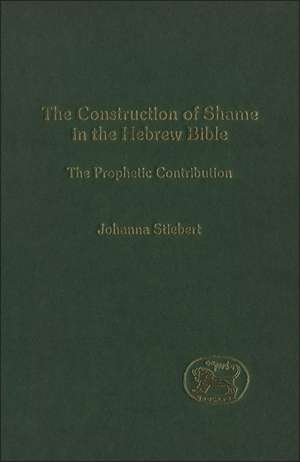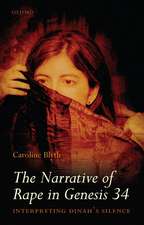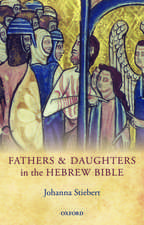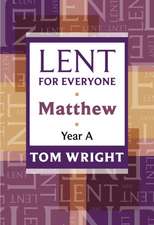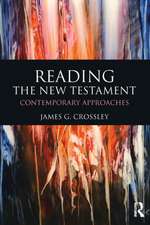The Construction of Shame in the Hebrew Bible: The Prophetic Contribution: The Library of Hebrew Bible/Old Testament Studies
Autor Johanna Stieberten Limba Engleză Hardback – 31 mai 2002
Din seria The Library of Hebrew Bible/Old Testament Studies
- 30%
 Preț: 599.90 lei
Preț: 599.90 lei -
 Preț: 159.16 lei
Preț: 159.16 lei - 30%
 Preț: 541.20 lei
Preț: 541.20 lei - 23%
 Preț: 192.01 lei
Preț: 192.01 lei -
 Preț: 99.41 lei
Preț: 99.41 lei - 30%
 Preț: 509.52 lei
Preț: 509.52 lei - 23%
 Preț: 192.36 lei
Preț: 192.36 lei - 30%
 Preț: 509.93 lei
Preț: 509.93 lei -
 Preț: 222.84 lei
Preț: 222.84 lei -
 Preț: 168.54 lei
Preț: 168.54 lei - 30%
 Preț: 655.82 lei
Preț: 655.82 lei - 22%
 Preț: 568.29 lei
Preț: 568.29 lei - 23%
 Preț: 190.50 lei
Preț: 190.50 lei -
 Preț: 472.27 lei
Preț: 472.27 lei - 30%
 Preț: 665.45 lei
Preț: 665.45 lei - 23%
 Preț: 193.80 lei
Preț: 193.80 lei - 30%
 Preț: 656.06 lei
Preț: 656.06 lei - 30%
 Preț: 538.77 lei
Preț: 538.77 lei - 24%
 Preț: 508.76 lei
Preț: 508.76 lei -
 Preț: 168.76 lei
Preț: 168.76 lei -
 Preț: 472.23 lei
Preț: 472.23 lei -
 Preț: 172.88 lei
Preț: 172.88 lei - 30%
 Preț: 510.04 lei
Preț: 510.04 lei - 30%
 Preț: 893.55 lei
Preț: 893.55 lei - 30%
 Preț: 508.44 lei
Preț: 508.44 lei - 30%
 Preț: 598.02 lei
Preț: 598.02 lei - 30%
 Preț: 774.62 lei
Preț: 774.62 lei - 30%
 Preț: 509.52 lei
Preț: 509.52 lei -
 Preț: 470.75 lei
Preț: 470.75 lei -
 Preț: 170.02 lei
Preț: 170.02 lei - 30%
 Preț: 714.35 lei
Preț: 714.35 lei - 30%
 Preț: 773.71 lei
Preț: 773.71 lei - 27%
 Preț: 1122.64 lei
Preț: 1122.64 lei - 22%
 Preț: 1122.47 lei
Preț: 1122.47 lei - 22%
 Preț: 1125.50 lei
Preț: 1125.50 lei - 22%
 Preț: 1066.87 lei
Preț: 1066.87 lei - 22%
 Preț: 1121.17 lei
Preț: 1121.17 lei - 22%
 Preț: 1005.18 lei
Preț: 1005.18 lei - 22%
 Preț: 1123.94 lei
Preț: 1123.94 lei - 22%
 Preț: 1131.53 lei
Preț: 1131.53 lei - 22%
 Preț: 768.98 lei
Preț: 768.98 lei - 22%
 Preț: 1120.52 lei
Preț: 1120.52 lei - 22%
 Preț: 827.69 lei
Preț: 827.69 lei - 22%
 Preț: 889.49 lei
Preț: 889.49 lei - 30%
 Preț: 714.27 lei
Preț: 714.27 lei - 22%
 Preț: 1128.93 lei
Preț: 1128.93 lei - 22%
 Preț: 1125.82 lei
Preț: 1125.82 lei - 22%
 Preț: 1064.75 lei
Preț: 1064.75 lei - 22%
 Preț: 893.15 lei
Preț: 893.15 lei - 18%
 Preț: 384.21 lei
Preț: 384.21 lei
Preț: 1123.22 lei
Preț vechi: 1441.88 lei
-22% Nou
Puncte Express: 1685
Preț estimativ în valută:
214.94€ • 229.83$ • 179.20£
214.94€ • 229.83$ • 179.20£
Carte tipărită la comandă
Livrare economică 17 aprilie-01 mai
Preluare comenzi: 021 569.72.76
Specificații
ISBN-13: 9781841272689
ISBN-10: 184127268X
Pagini: 210
Ilustrații: black & white illustrations
Dimensiuni: 156 x 234 x 17 mm
Greutate: 0.45 kg
Editura: Bloomsbury Publishing
Colecția Sheffield Academic Press
Seria The Library of Hebrew Bible/Old Testament Studies
Locul publicării:London, United Kingdom
ISBN-10: 184127268X
Pagini: 210
Ilustrații: black & white illustrations
Dimensiuni: 156 x 234 x 17 mm
Greutate: 0.45 kg
Editura: Bloomsbury Publishing
Colecția Sheffield Academic Press
Seria The Library of Hebrew Bible/Old Testament Studies
Locul publicării:London, United Kingdom
Recenzii
"Stiebert is to be commended for calling the attention of biblical scholars to a neglected semantic domain and for focusing our attention on the writings in which they predominate. She has summarized important criticisms of the honor-shame rubric, appropriately asserting that models presuming cultural continuity should not be superimposed on ancient texts.... In the end, the best insights of the book are the careful, lexically sensitive readings of biblical texts, the kind of work this reviewer wishes there was more of." --Journal of Hebrew Scriptures, Volume 4 (2002-2003)
A summary of the book -Religious Studies Review, 01/04
A summary of the book -Religious Studies Review, 01/04
